Trump's 'Salute to America' July 4th celebration not without controversy
The president put his own spin on the Fourth of July with "Salute to America."
On the steps of the Lincoln Memorial, President Donald Trump delivered his "Salute to America" speech that side-stepped politics and focused on the military, American history and cultural moments that ranged from the Revolutionary War to the birth of rock 'n' roll.
"Hello America, hello," Trump said at the start of what he promised to be the "show of a lifetime" that in the end, was a more subdued, rain-soaked and patriotic tribute to the Fourth of July.
"Today, we come together as one nation with this very special Salute to America," Trump said. "We celebrate our history, our people, and the heroes who proudly defend our flag — the brave men and women of the United States military."
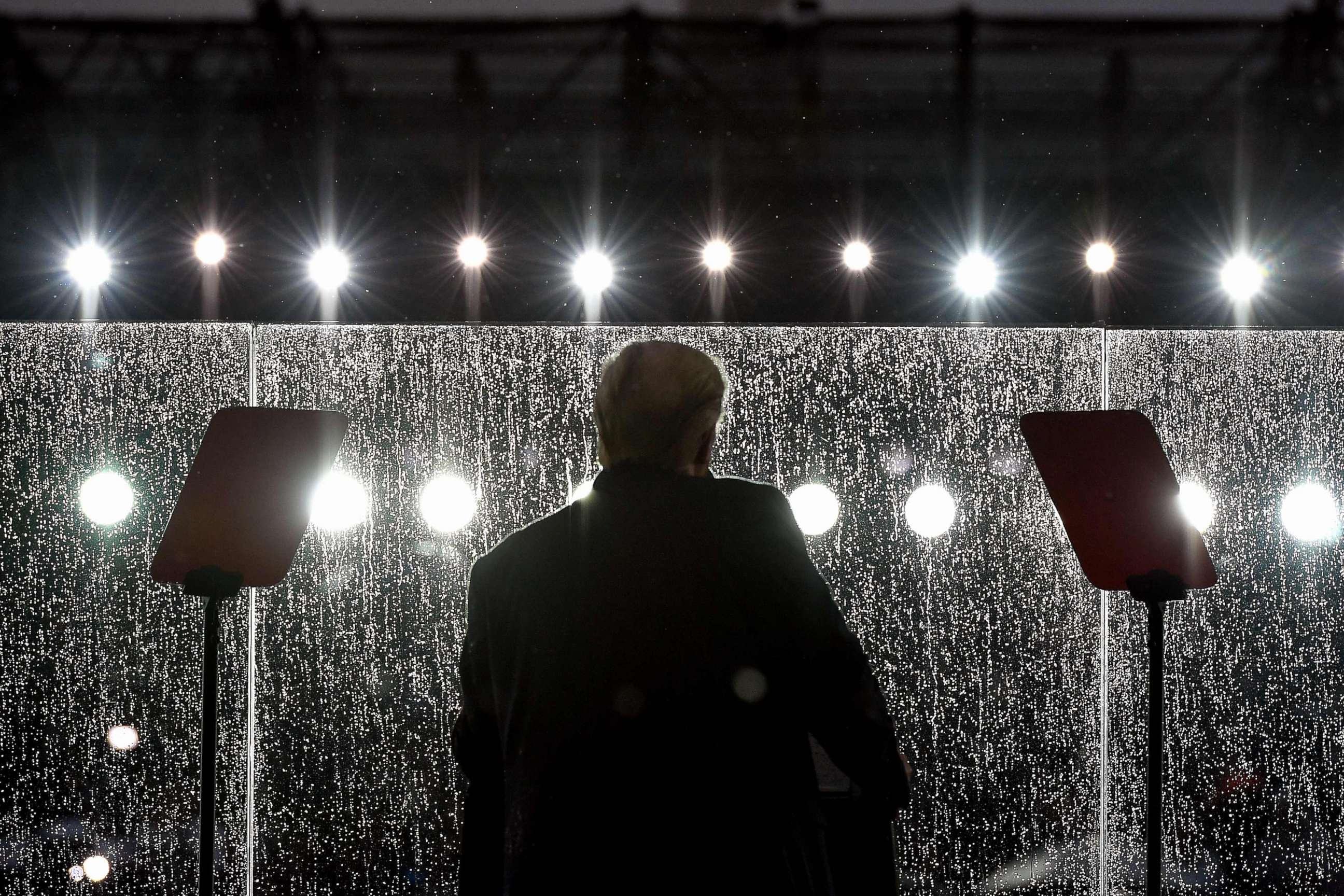
"On this day, 243 years ago, our founding fathers pledged their lives, their fortunes, and their sacred honor, to declare Independence and defend our god-given rights," the president said. "That same American spirit that emboldened our founders has kept us strong throughout our history. ... It is the spirit, daring, and defiance, excellence and adventure, courage and confidence, loyalty and love, that built this country into the most exceptional nation in the history of the world, and our nation is stronger today than it ever was before. It is its strongest now."
Despite concerns about the president politicizing the speech, the president stuck to the script for the unprecedented presidential spectacle, with Air Force One flying overhead as the first lady and president walked out.
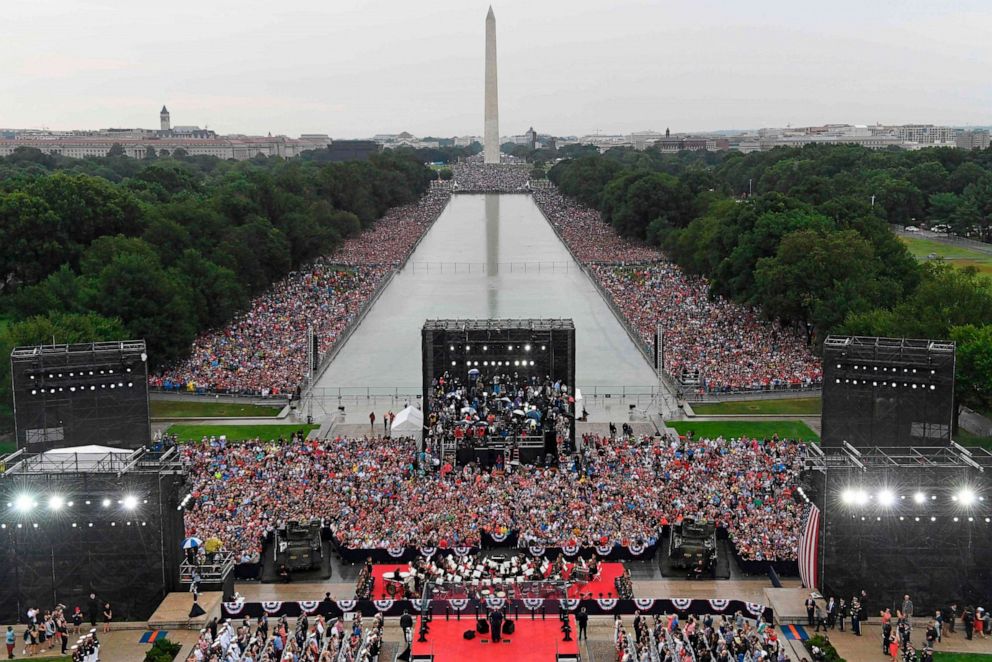
Throughout the president's speech, figures from American history in the audience like Apollo Mission Flight Director Gene Krantz and Clarence Henderson, one of the African American students who participated in the Woolworth lunch counter sit-ins, were recognized with applause. After recognizing Krantz, the president proclaimed that the U.S. would soon put an American flag on Mars.
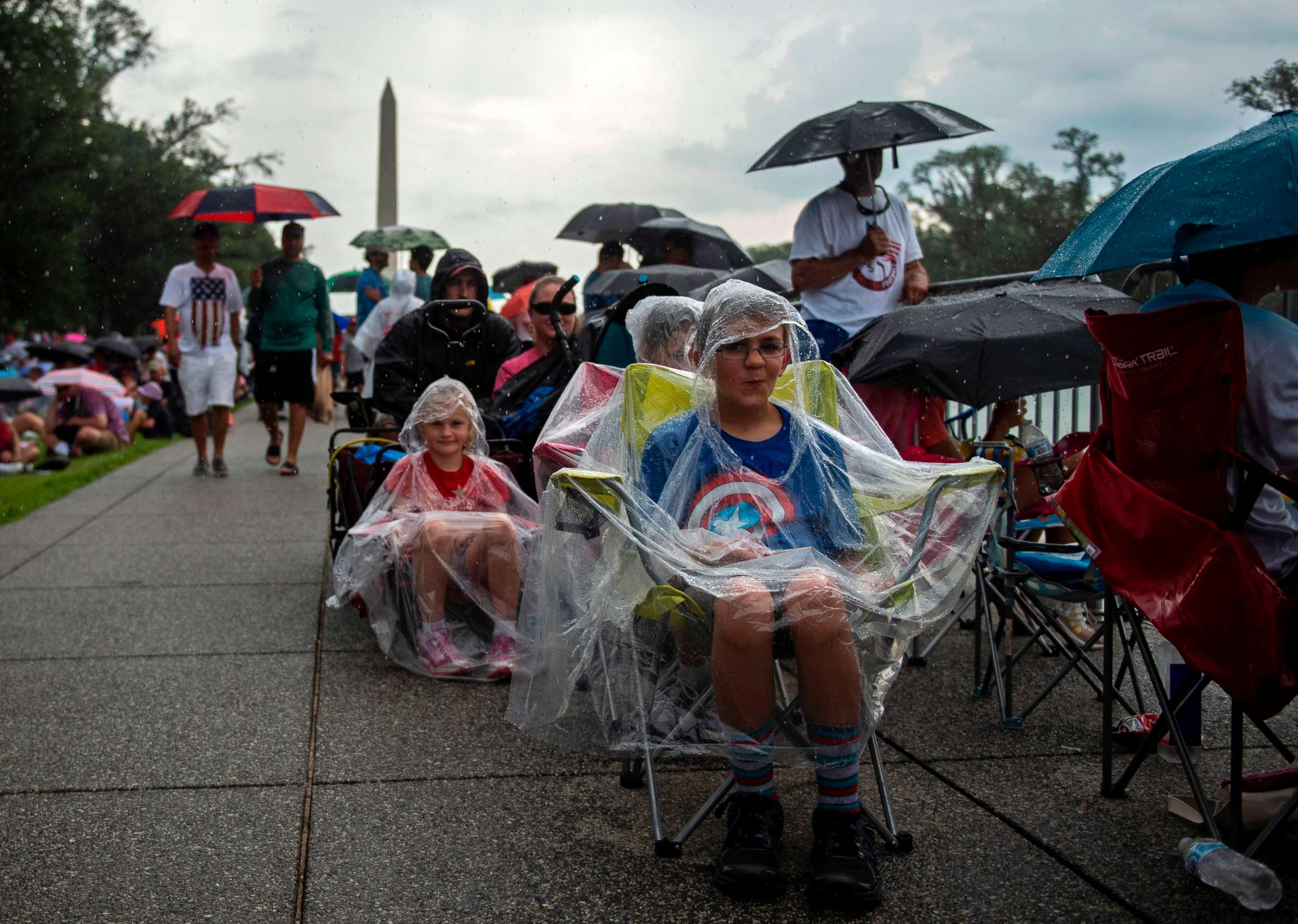
After his main remarks, the president invited acting Secretary of Defense Mark Esper and Chairman of the Joint Chiefs of Staff Gen. Joseph Dunford to stand at his side while he gave short speeches about each branch of military. After short remarks, the branch's service song was played before a dramatic flyover.
"What a great country," the president said, after a B-2 stealth bomber and F22 raptors soared overhead.
"Salute to America" ended with Navy Blue Angels soaring over the crowds.
While the event didn't face a rain delay, rain was still front in center. The president stood in front of a protective glass barrier that was dripping in raindrops and prevented a crystal clear view of the president.
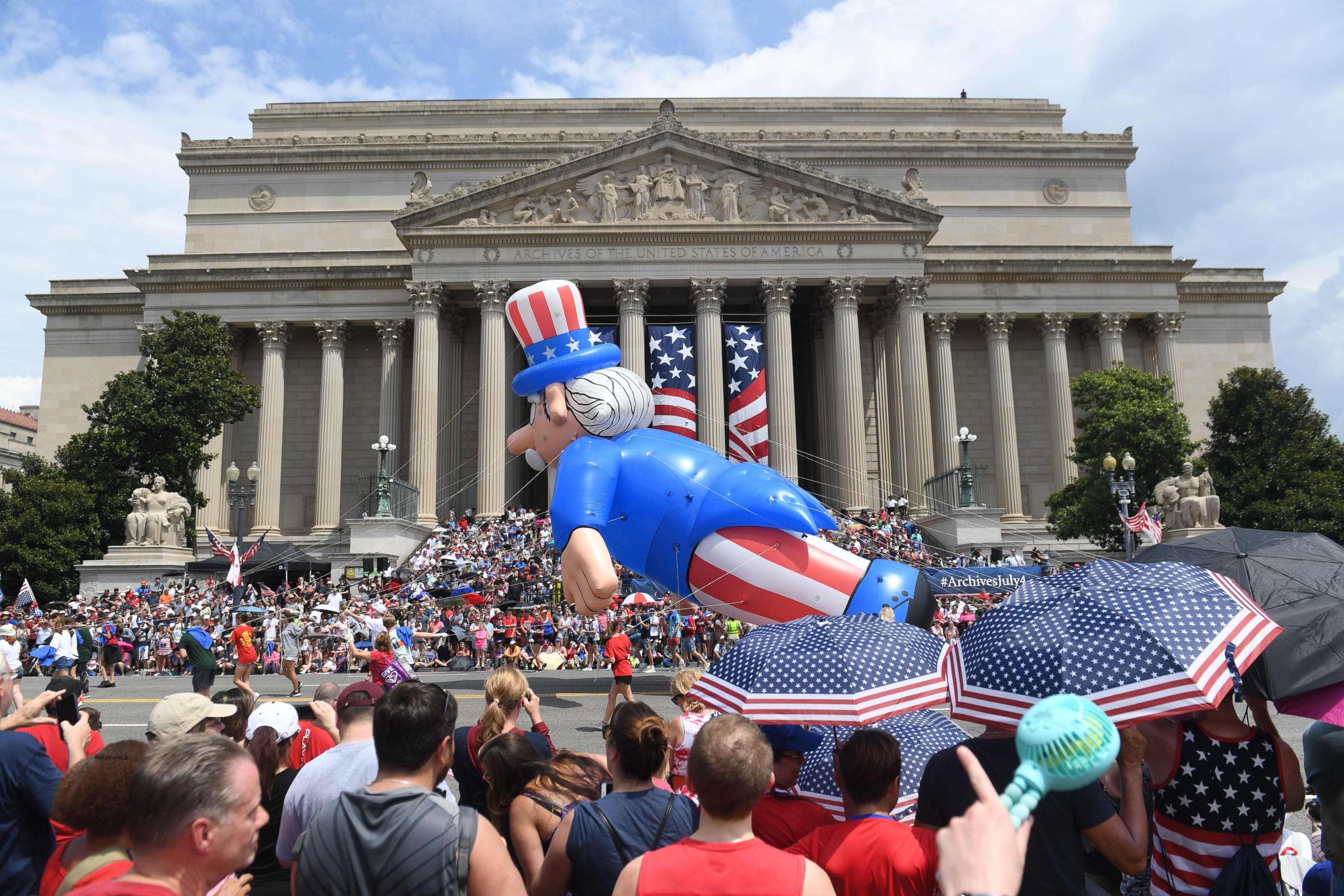
The president was joined on the stage by Vice President Mike Pence and second lady Karen Pence, as well as cabinet members like Secretary of Transportation Elaine Chao, wearing a rain poncho, Health and Human Services Secretary Alex Azar and Labor Secretary Alex Acosta.
Earlier on Thursday, the nation's capital held its traditional National Independence Day Parade down Constitution Avenue and "A Capitol Fourth Concert" at the U.S. Capitol.
There was a dramatic reading of the Declaration of Independence outside the National Archives and inside, Pence spoke before 44 people were sworn in during a naturalization ceremony.
But this year, Trump decided to put his own spin on festivities in Washington that some believed would politicize a national holiday.
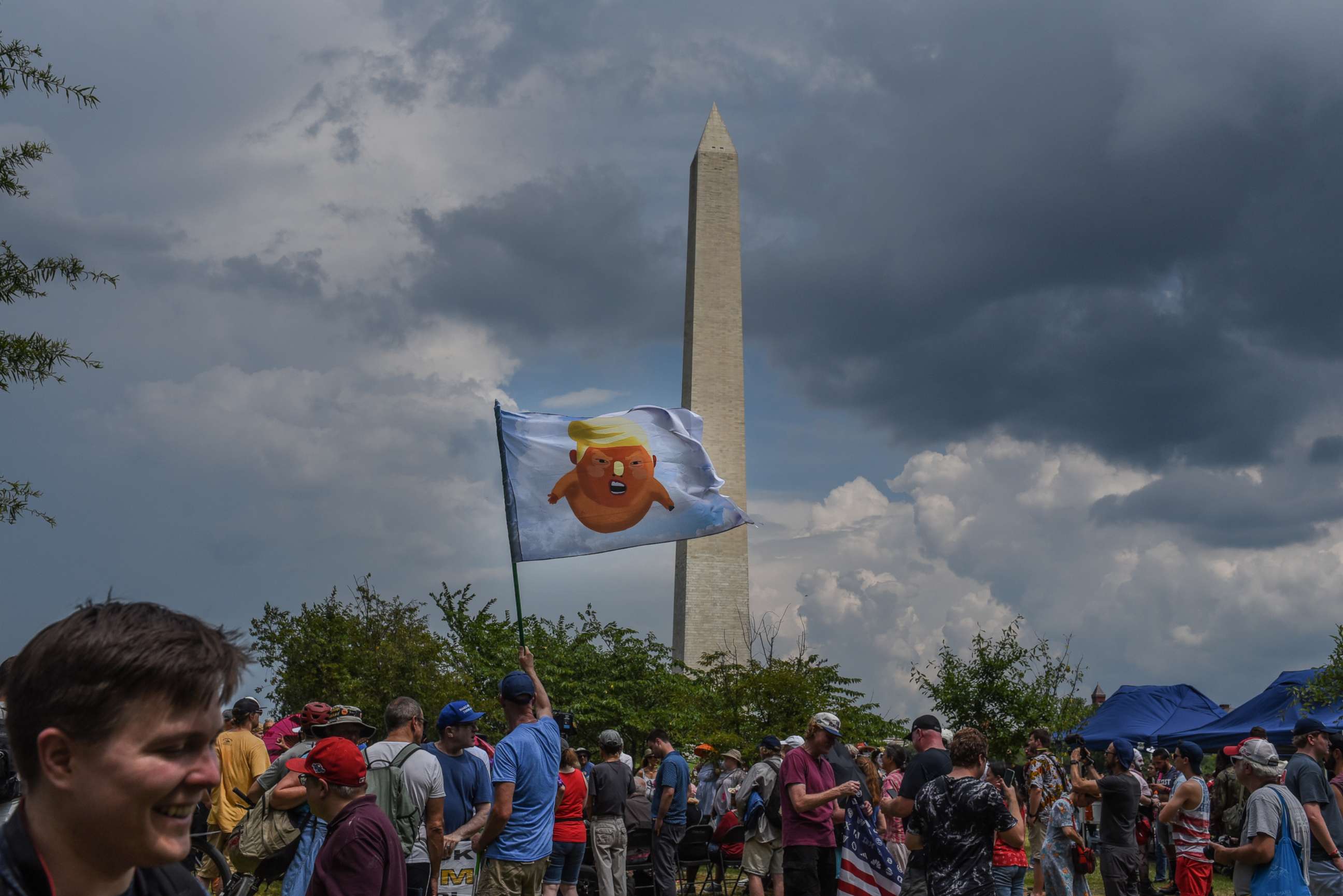
Called a "Salute to America," the events paid tribute to each of the nation's five service branches with flyovers from military planes and a display of two 60-ton M1 Abrams tanks and two Bradley Fighting Vehicles. The celebration will conclude with a 35-minute fireworks display, the biggest the nation's capital has ever seen.
After tweeting a message wishing everyone a happy Fourth of July on Thursday morning, Trump also wrote about the "Salute to America."
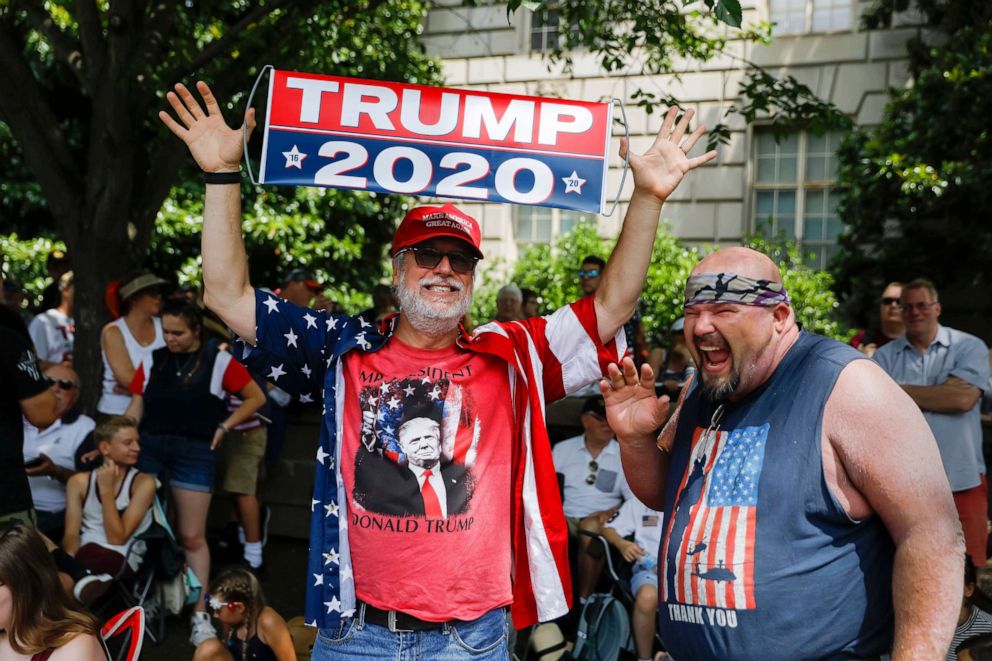
But the new events prompted controversy and accusations that the president is turning a holiday into a "Make America Great Again" rally.
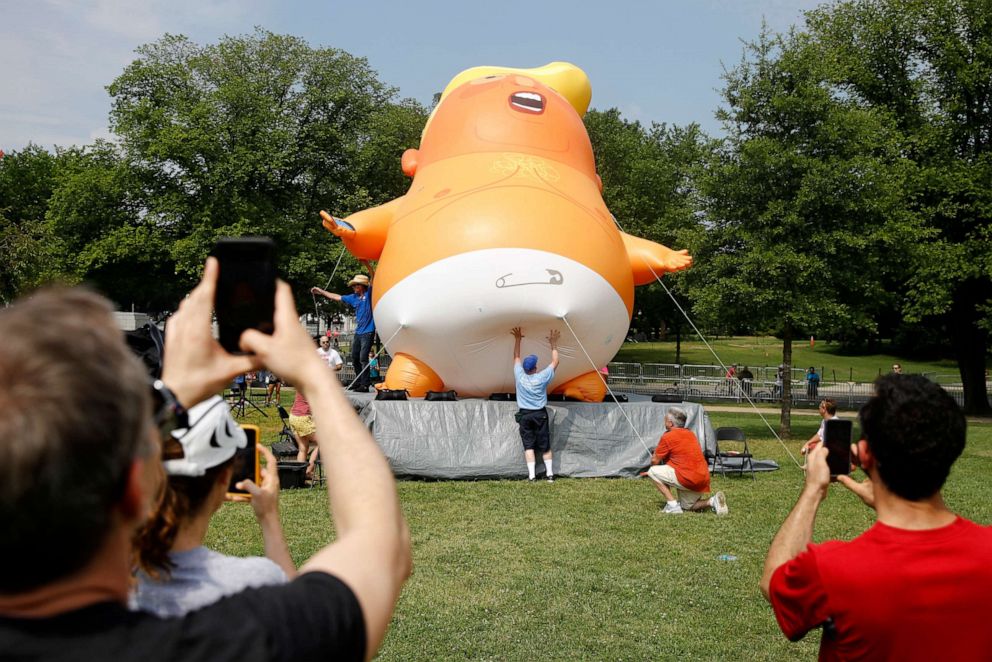
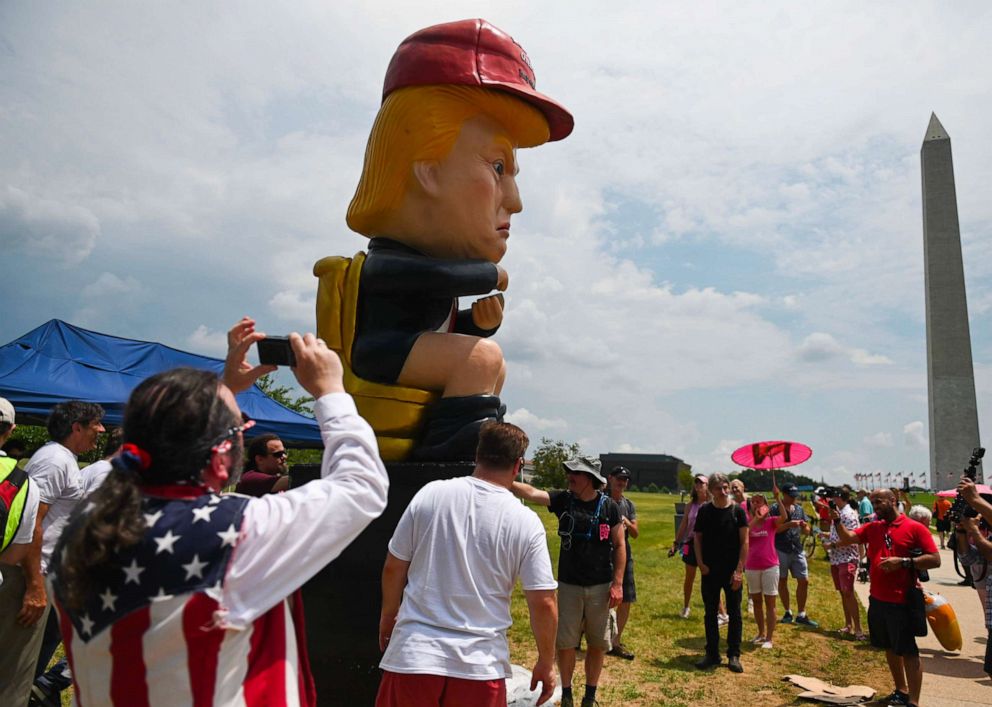
Protests were planned against the president and a permit was granted for protesters to inflate a giant "Baby Trump" balloon. The now infamous inflatable grabbed headlines when Trump visited London in June. It was also grabbing attention on the National Mall as it was inflated Thursday afternoon. Several hours later, the balloon had to be deflated because of wind and rain. A spokesperson for Code Pink told ABC News that it would be re-inflated if the weather improved.
Medea Benjamin, a co-founder of Code Pink -- the group that arranged for the "Baby Trump" balloon to be at the Independence Day events -- said she is here because she is "disgusted" that Trump has politicized the national celebration.
"Trump is making today all about him, when it is supposed to be all about us," Benjamin said Thursday afternoon after helping to set up the inflatable. "He's charging the taxpayers millions of dollars for what is a campaign rally for him and it is just wrong."
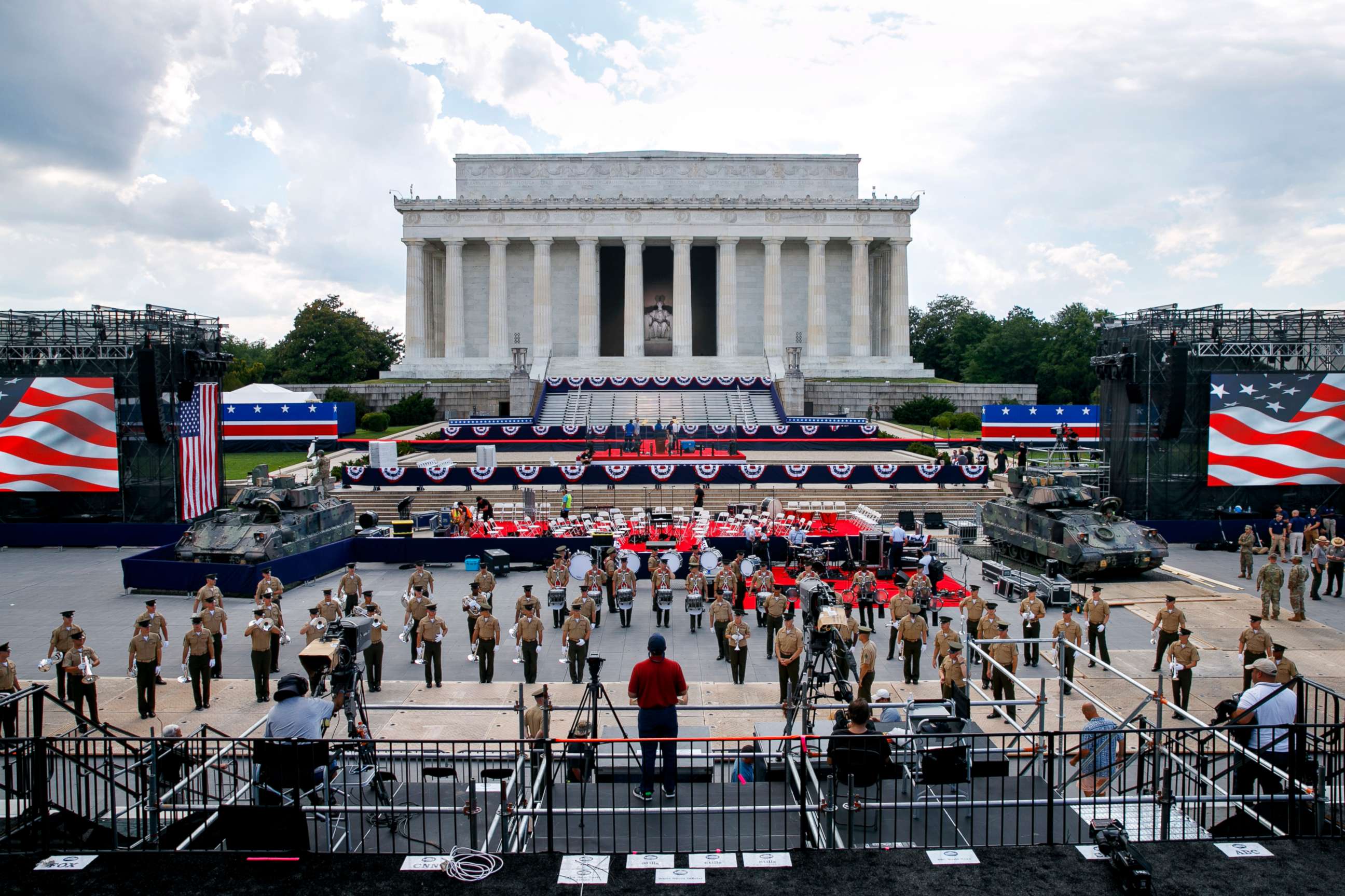
Despite the White House's insistence that Trump's remarks would not be political, tickets were distributed to allies of the president, including the Republican National Committee, the Trump administration and cabinet officials the week before the event. The Democratic National Committee was not given tickets.
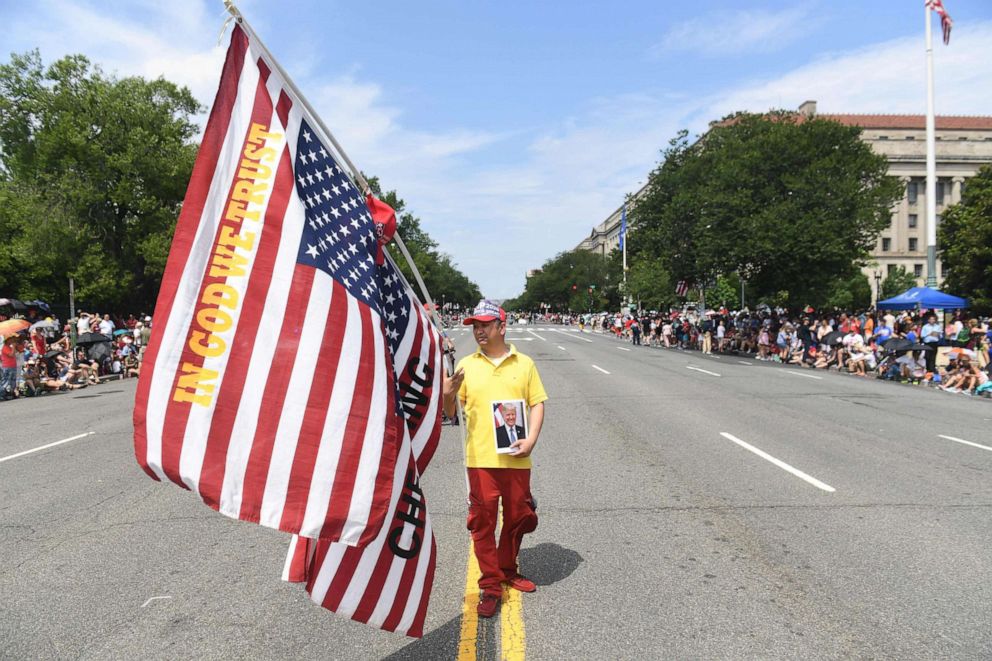
In a statement, the RNC defended their allotment of tickets to what was supposed to be a non-partisan event.
"It's standard practice for the RNC to receive a small number of tickets to events just as the DNC did under Democrat Presidents," according to the statement. "This is routine for events like the White House Christmas Open Houses, Garden Tours in spring and fall, etc."
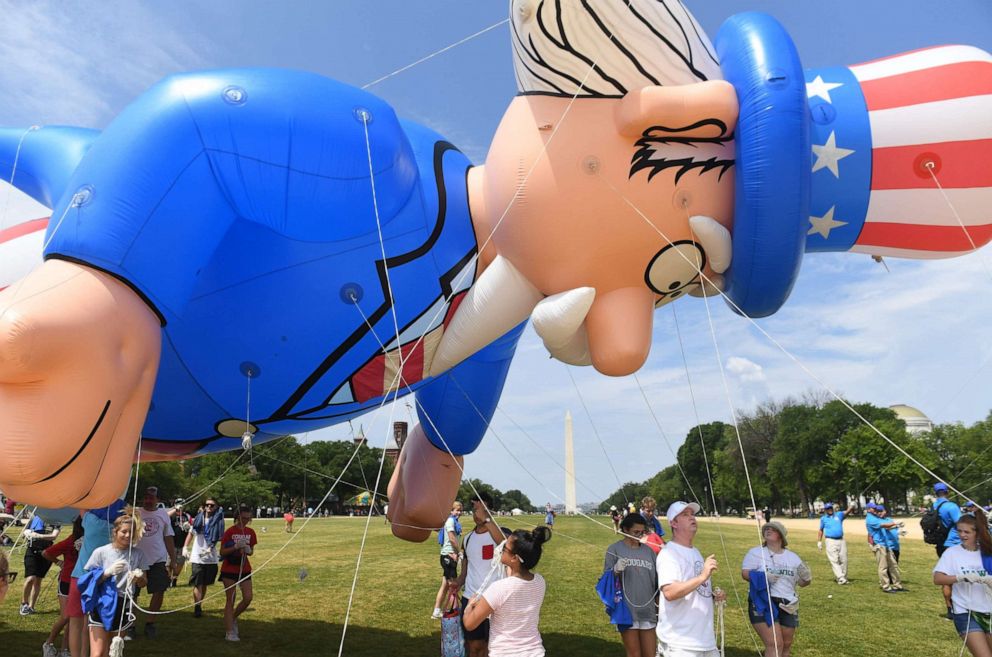
Concerns were also raised about the costs associated with this year's celebration. Event organizers at the Pentagon and Department of Interior haven't revealed exactly how much money was spent this Fourth of July on everything from the programming to security.
The Washington Post reported that the National Park Service is using nearly $2.5 million in park entrance fees to cover costs, funds that would have been used to do repairs on the nation's parks.
William Ramos drove down from New York on Thursday morning specifically to hear Trump's remarks later in the evening. He said that he doesn't view the cost of including the military in the holiday events as a waste and was interested in seeing the hardware.
"I like to be proud of our country and our military," he said. "I don't look at it in a negative way. I think if it was (President Barack) Obama doing this we would be happy to see the military included."
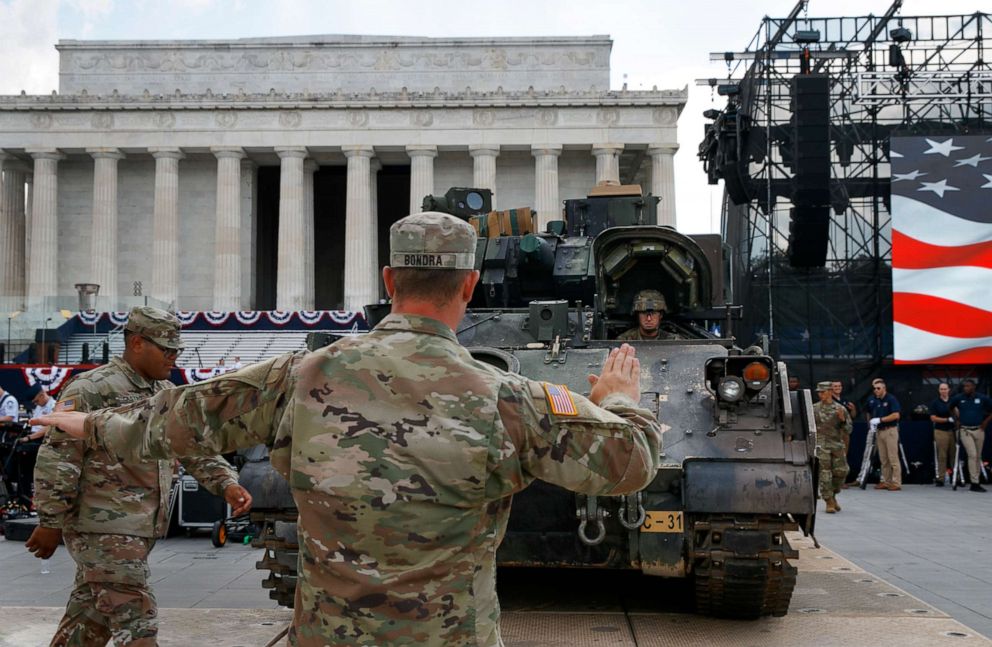
On Wednesday, the president said those costs would be "worth it" and tried to downplay the additional expense because "we own the planes, we have the pilots, the airport is right next door (Andrews), all we need is the fuel. We own the tanks and all."
"Fireworks are donated by two of the greats," Trump added.
In the end, the weather may put a damper on the Washington events -- forecasts call for thunderstorms on Independence Day. Still, a spokeswoman for the Department of Interior said that events will take place "rain or shine."
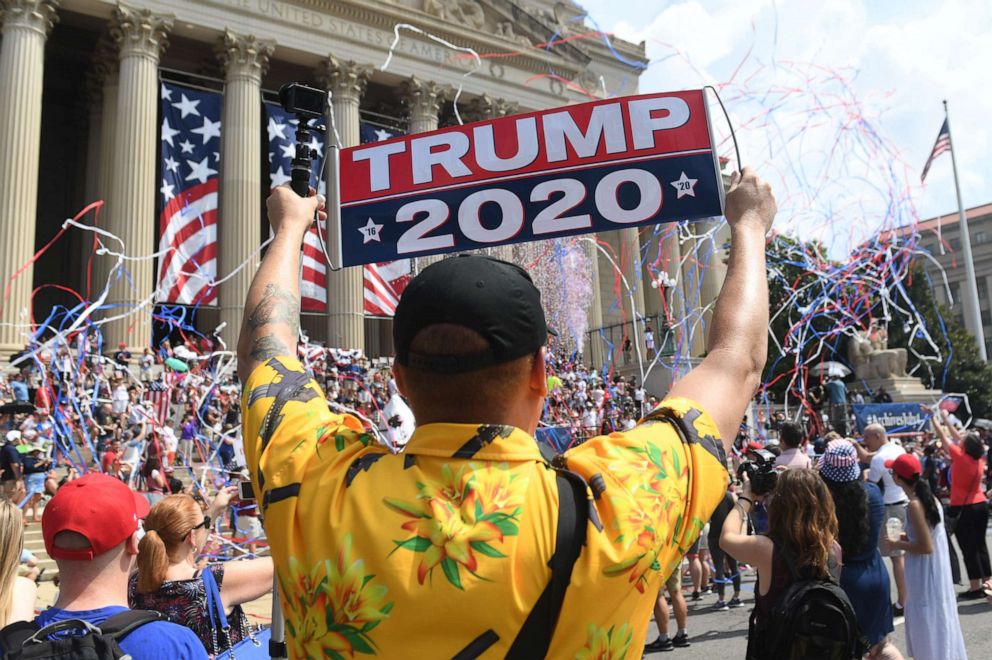
"Visitor safety is always a top priority and we are working with our interagency and law enforcement colleagues to ensure the safety of all who attend, including in the event of inclement weather during the day," Molly Block said in a statement.
ABC News' Stephanie Ebbs, Luis Martinez and Christine Szabo contributed to this report.




